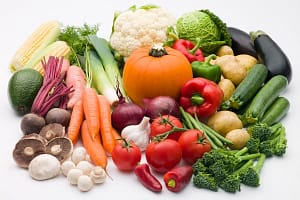The pandemic and several other factors in recent years have changed not only how consumers handle food but also how they assess their food choices and perceive nutrition in general. Today’s dieticians were surveyed by 1,165 registered dietitians (RDNs) in the ninth annual Trends in Nutrition survey of Pollock Communications, an independent New York city public relations agency for nutrition and health, to know how consumers’ diets in the near and long term will change as a result of COVID-19.
Betway casino findings show a future where focus on foods that promote immunity, are affordable, provide comfort and make a significant difference to the environment. For example, in the United States, health and nutrition are the top two reasons why people buy plant-based cheese, yogurt and ice cream, with health coming second and vegetable meat substitutes gaining ground (plant-based Kerry Proprietary Research, 2020). The trend knows that it is best to reach for wholesome, unprocessed foods to get the most nutritional value for your wallet.
Consumers are becoming self-aware about climate impacts
Consumers are becoming more aware of the link between food choices and climate impacts. Being more aware of how food and good nutrition affect their overall health and longevity, they take measures to improve their body’s natural defences. Because the years of staying at home and cooking have more influence on consumers to re-evaluate their food and nutritional choices and behaviours, which are unlikely to change when they start eating again.
In a report on 2020 consumer environmental trends, it was found that 78% of consumers worldwide are concerned about the environment. In fact, the survey by the 2020 International Food Information Council’s Food and Health Survey found that 34% of consumers consider environmental sustainability when shopping. Individual measures such as reducing food waste and a healthy diet can make a significant difference in this fight against environmental issues.
Sustainability is the key for future trends
There will also be a growing interest in buying and consuming sustainably grown food. Consumers are becoming more knowledgeable when it comes to agriculture and sustainability practices, and we think that 2022 will be the year we see consumers doing more to tackle food waste. Not only do we predict an increase in recipes that enhance ingredients of products that would have been discarded in the past, but we also believe that communities will begin to find more efficient ways to feed surplus food to the hands of people suffering from food shortages instead of throwing it away.
Healthy eating guidelines continue to shift from focusing on individual nutrients to food-based recommendations for optimal dietary patterns. People eat different combinations of foods over time and not isolated nutrients. The synergistic effects of whole foods that support optimal health are better taken into account when dietary recommendations focus on consistent dietary patterns.
Conclusion
If there is one thing that has been consistent with diets over the last forty years, it is that there is always something new to try. A little more consistency can promote a balanced diet and a healthy, active lifestyle. Dairy-free and plant-based alternative food industries are evolving in response to emerging health and wellness trends. Providing new foods and drinks with proactive health benefits is a great way to improve people’s health without having to change their diets.






Leave a Comment